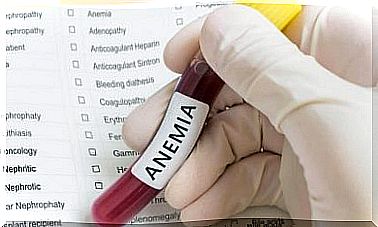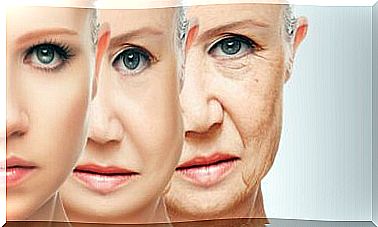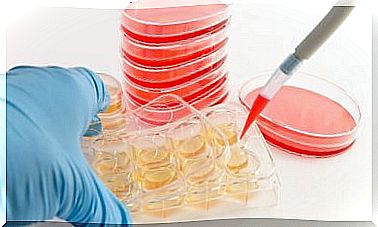Polycystic Ovary Syndrome And Its Treatment
Patients affected by polycystic ovary syndrome present fibrous structures inside the ovary that can produce hormonal alterations. Thus, they usually present high levels of androgens (hormone associated with the male sex) such as testosterone and androsterone, among others.
In addition, this hormonal decompensation produces a series of symptoms in the patient. If the disorder is not treated properly, more serious complications may develop over time.
Polycystic ovarian syndrome (PCOS)
At the moment, the specific cause of this syndrome has not been identified. However, there are a number of factors that are associated with the development of this disorder. In any case, there are several changes in the normal functioning of the ovaries.
Thus, mature eggs are not expelled to the external environment during the menstrual cycle. On the other hand, the ovaries present small accumulations of liquids that are called: follicles.
Obesity is a factor that can make PCOS symptoms worse and complications develop, such as:
- Type 2 diabetes.
- Hemorrhage inside the uterus.
- Sleep disorders. Especially sleep apnea.
- Alterations during pregnancy. It is generally associated with gestational diabetes and hypertension.
- Other diseases such as uterine cancer or metabolic syndrome, although with a very low probability.

Symptoms
- Fatigue.
- Anxiety.
- Depression.
- Headache.
- Slight hirsutism.
- Humor changes.
- Acne (of variable intensity, depending on the case).
- Irregular menstruation (in terms of periodicity, duration and intensity of bleeding) or amenorrhea, as the case may be.
- Mild obesity (not in all cases, in fact, there are women who can lose weight instead of gaining it).
Treatment for polycystic ovary syndrome

Today, the medical team has a large number of possibilities when choosing treatment. According to the characteristics of the person and the severity of the syndrome, the most appropriate method is chosen.
In any case, it is important that the patient inform the group of specialists about their usual medication. You should also consult your lifestyle, the hypersensitivities or allergies that you have and the alterations that you have suffered.
In this way, among the treatment guidelines most used today we can find:
- Controlled weight reduction. For this, the consumption of a balanced diet and physical exercise will be recommended.
- Medication administration. In this way, endocrine symptoms related to PCOS can be treated. For example, among the most used drugs we can highlight:
- Contraceptive pills. They are capable of regulating hormone levels due to the fact that they contain estrogen and progesterone in their composition. They can regulate menstrual periods and uterine bleeding. They also reduce the chances of certain diseases such as uterine cancer.
- Chemical compounds with progesterone. Like contraceptives, they help regulate menstrual cycles and are a form of prevention against uterine cancer.
- Other treatments to deal with excessive hair growth or hirsutism.
- Electrolysis. It is a technique in which the follicles of the ovaries are destroyed. For this, several sessions are needed where a needle emits a small amount of electrical current to the problem area.
To consider
It is important for every woman to visit her gynecologist on a regular basis in order to be able to take good control of her health and, if necessary, obtain an early diagnosis.
On the other hand, if you have discomfort and doubts about how to treat them, the best thing to do is always consult your doctor before making any changes to your lifestyle.









